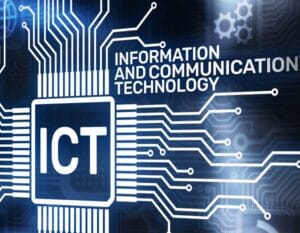
Curriculums
Overview for Parents & Pupils
This page contains information about each curriculum I teach (or have taught before) and the study timelines for each year which will be updated yearly. As pupils or parents, I hope you find this useful.
“At its heart lies the notion of computational thinking: a mode of thought that goes well beyond software and hardware, and that provides a framework within which to reason about systems and problems.”
(Computer Science a Curriculum for Schools)
Why choose Computer Science?
If you are here you have probably already chosen it! so you already know that computer science is an intensely creative subject that combines invention and excitement, that can look at the natural world through a digital prism. It involves a deep want for technical understanding of computer systems as well as providing the ability to analyse and solve problems using computational thinking. An interest in programming for any computer science course is a must!
Advertisement
Key Stage 5
A-Level and IB
General Certificate of Education (GCE) Advanced Level, or A-Level, is a main school leaving qualification in the UK for students aged 16-18. It is available as an alternative qualification in other countries, namely the International Baccalaureates’ (IB) Diploma Programme. Both are rigorous pre-university courses that are designed to test whether a pupil has the capacity to enter university.
In Computer Science at Key Stage 5, it requires students to further explore and understand the core academic principles of computing including programming, computer architecture, boolean logic, binary/hexadecimal, and in-depth computer networking principles. Classroom learning is transferred into creating real-world systems through the creation of an independent programming project.
IB Diploma Programme
“A focus on fostering critical thinking and building problem-solving skills, while encouraging diversity, international mindedness, curiosity, and a healthy appetite for learning and excellence.” – the ib
Overview: Open
Schedule: 2020/2021 Timeline
Complete guide (inc. Syllabus): (First examinations 2014) 2020-22
OCR A-Level
OCR’s Computer Science will value computational thinking, helping learners to develop the skills to solve problems, design systems, and understand the power and limits of human and machine intelligence.
Overview: Open
Curriculum Map:
Key Stage 4
GCSE
General Certificates of Secondary Education are part of the UK National Curriculum taught to pupils aged 14 to 16 in years 10 and 11. It also includes exams, the results of which have a significant bearing on a child’s future career.
In Key Stage 4 Computer Science pupils are encouraged to begin developing an interest in computational thinking and an understanding of the principles of problem-solving using computers. They will apply this understanding to create computer-based solutions to problems using algorithms and a high-level programming language.
Cambridge IGCSE
Computer Science
Syllabus: 2021 (Year 11s of 2020/21)
Schedule: Year 10, 2020/21, Year 11, 2020/21
In ICT, pupils combine theoretical and practical skills that focus on the ability to use common software applications, including word processors, spreadsheets, databases, interactive presentation software, e-mail, web browsers, and website design.

Syllabus: 2020-22
OCR GCSE (1-9)
Syllabus/Specification: J277 for 2022 Examinations (PDF)
Key Stage 3
Is the three years of schooling in maintained schools in England and Wales referred to as Year 7, Year 8, and Year 9, when pupils are aged between 11 and 14.
Key stage 3 Pupils are introduced to several topics that underpin the core concepts of computer science. They are taught to design, use and evaluate computational abstractions that model the state and behavior of real-world problems and physical systems. They will develop their algorithmic thinking and problem-solving skills through practical applications of computer science topics ranging from Scratch & Python programming to encryption techniques and computer networking.
Schedule: 2020/21 Timeline